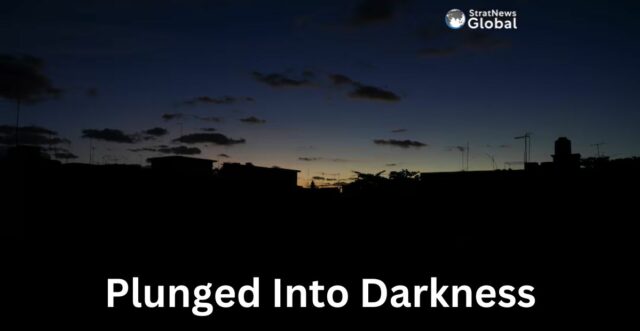
Cuba has begun restoring power after the island’s electrical grid collapsed, the latest in a string of nationwide blackouts.
The government has started restoring electricity to scattered circuits around the country.
The grid collapse shows that the nation’s power generation system is in a frail state.
Cuba`s Energy Minister Vicente de la O’Levy said the government had prioritized hospitals and water pumping facilities.
But millions of Cubans across the island remained without power by mid morning, according to official reports.
The situation forced the Communist-run government to close schools and order non-official workers to stay home until electricity was restored.
The Energy Minister said he expected the system to be back online by Thursday, but said he would not rush the process.
“We have very capable specialists and they are all involved. We’re going step by step,” de la O’Levy said.
Cuba’s grid has fallen into near-total disarray amid fuel shortages, natural disaster and economic crisis.
The island’s oil-fired power plants are already obsolete.
These plants are facing a crisis as oil imports from Venezuela, Russia and Mexico have dwindled and caused multiple nationwide blackouts over two months.
Shortages of food, medicine, water and electricity have made life increasingly unbearable for many Cubans.
Notably, many Cubans have fled the island in record-breaking numbers in the past three years.
Cuba blames U.S. sanctions, which complicate financial transactions and the purchase of fuel, for the crisis.
The Wednesday morning blackout was triggered by a failure at the Antonio Guiteras por plant in Matanzas, the island’s top electricity producer, which shut down at around 2 a.m. localtime.
Several other major power plants were undergoing maintenance and were offline when the Matanzas plant failed.
This led to the nationwide collapse, the energy minister said.
Millions of people across Cuba were already struggling with long rolling blackouts daily before Wednesday’s collapse.
Havana hotel worker Danielis Mora woke up frustrated and confused on Wednesday, like many Havana residents, who now experience regular blackouts throughout the week.
“I didn’t know it was a total blackout again,” Mora said.
Scattered protests have erupted over the past two months over the repeated power failures as well as water, gas and food shortages.
The system failure on Wednesday morning had left the capital Havana almost completely in the dark.
Officials said floating power plants, contracted from Turkey’s Karpowership, were generating electricity from offshore of Havana.
This is how the government managed to supply power by mid morning to hospitals and a small number of the city`s two million residents.
Cuba’s obsolete grid collapsed several times in October as fuel supplies dwindled and Hurricane Oscar struck the far eastern end of the island.
The grid collapsed again in November due to Hurricane Rafael.
Last week, Cuba`s government issued a decree ordering state and private businesses to generate more of their own electricity from renewable resources.
The regulations also require businesses to limit their use of air conditioning, among other measures, as the country wrestles with the increasingly dire energy crisis.




